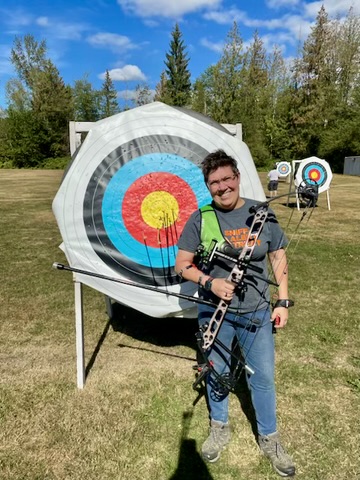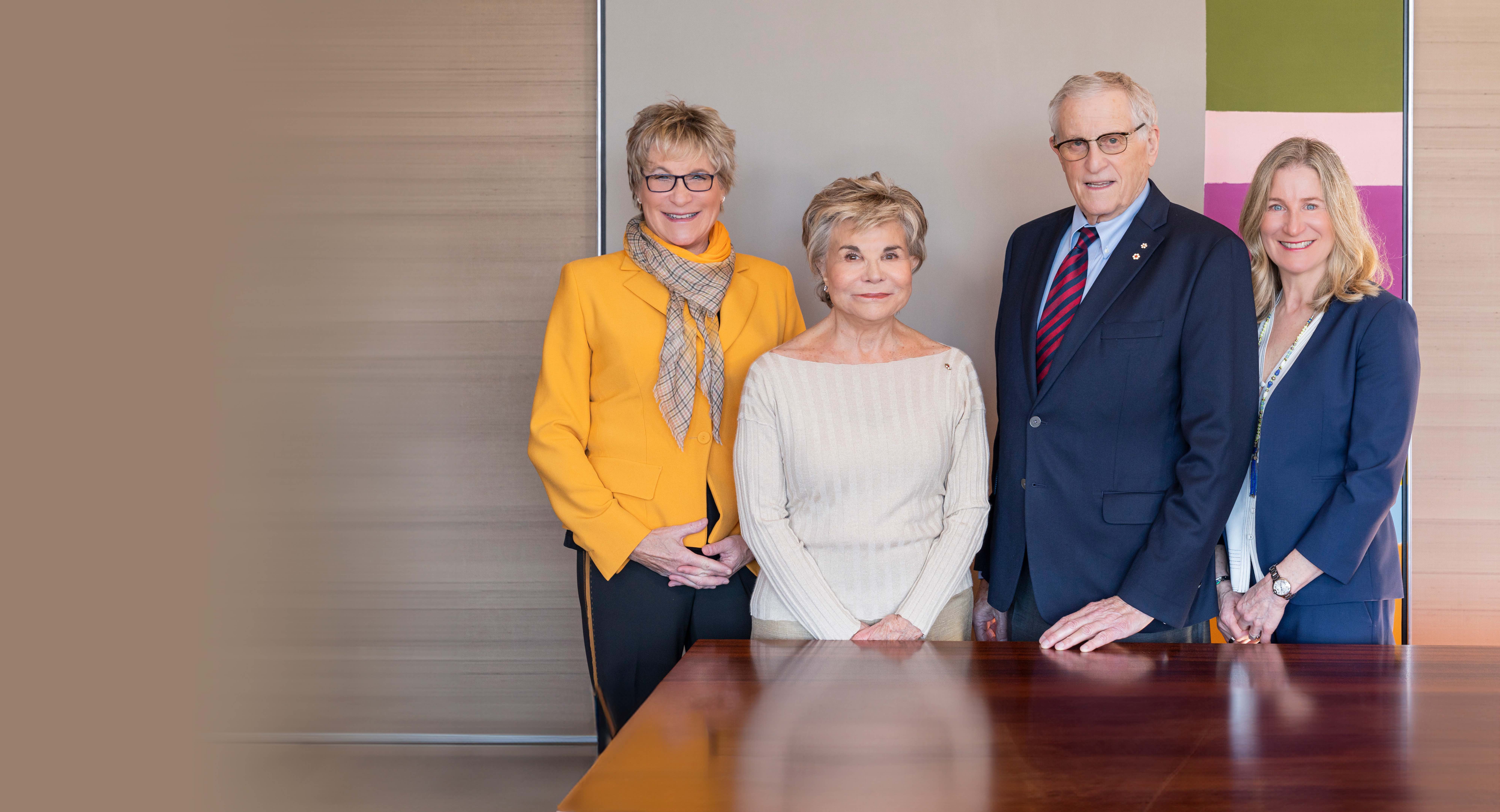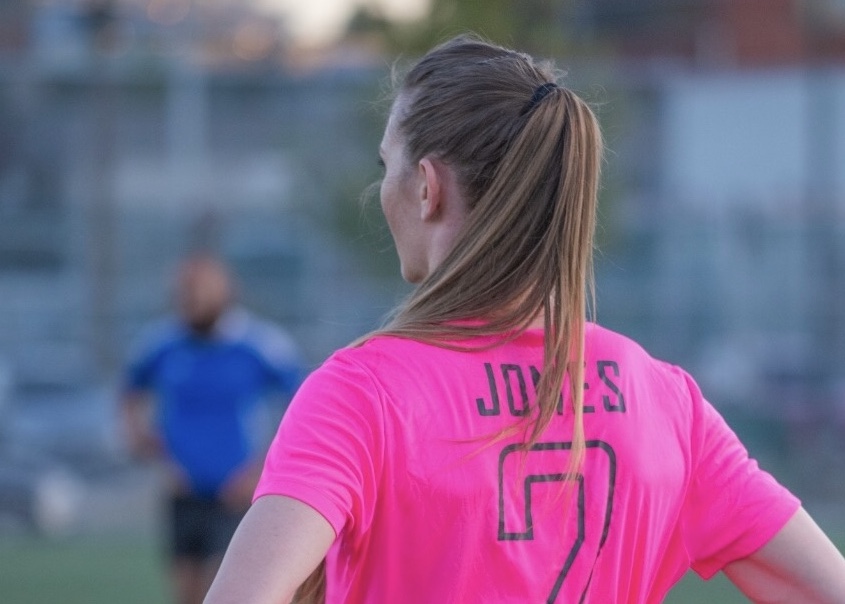Co-founder of the internationally renowned Canines for Care program, former cardiology technologist, handler for bomb sniffing dogs, Canadian military medic, and Emergency Medical Technician. Teresa Zurberg has worked in so many positions and done so much, she sometimes has trouble remembering them all.
“I get bored easy,” says Teresa. “I like learning, I love doing, trying something new and pushing my boundaries, pushing my comfort zone. Stuff like that excites me.”
Yet for Teresa, one throughline has always existed in her storied career—caring for people.
And it didn’t start because of values instilled in her by her father and extended family, who worked in the Alberta Health Care sector. And it wasn’t because of a sense of duty to help her community and those in it, which she does.
For Teresa, it all started because of a TV series she watched as a kid that blew her mind.
“Way back in the early ’70s, there was a show called ‘Emergency!,’” says Teresa. “And I was like, ‘Wow, look at these guys in the ambulance.’ Since then, it has always just been an interest of mine, and I still miss it a little bit on the front lines, to go on the calls.”
Military life, medical care, and meeting the pups
Teresa moved to British Columbia from her home in Alberta in 2005. She was assigned to a post at Jericho Beach by the Canadian Military, which she had joined in her mid-20s to pursue a dream of becoming a medic.
In BC, her role became medically clearing other military personnel on their way to Afghanistan as reservists, and then helping them again on their return back.
During her posting, Teresa had to do the military calls “skill maintenance”. An upkeep of her medic abilities. This was done at VGH in the Emergency Department, where she attended trauma rounds. It was here she met a number of people who would soon help change her direction in life.
“I met people, I actually met my husband here and it turned out he was a nurse at VGH,” says Teresa. “And I loved dogs. That was what bonded us, we both had dogs and so we went on a dog-date.”
Five years later, in 2010, Teresa decided to retire from military duty. Instead, she went to BCIT as a full-time student to become a Cardiology Technician, and then began working full-time as a Canine Detection Specialist—a role she quickly fell in to after talking to one of the dog handlers she saw sniffing around BC Ferries.
“We started talking and I learned that the security company was in Maple Ridge,” says Teresa. “Long story short, I ended up going there and they handed me a dog and said, ‘Show us what you can do.’ And I’m like, ‘I’m just here to watch.’ They’re like, ‘Go try. Go try and run this dog on the wall.’ And next thing I knew I had a job. I was now going to school and training full-time to be a canine detection specialist.”
For four years, she utilized canines to detect bombs at concerts, on ferries, at Canucks games, and more.
Then in 2014, a pivotal moment happened. Her husband showed her an article about dogs in the Netherlands who were being trained to smell out Clostridium difficile, commonly known as C. diff, which is commonly found in hospital settings.
“I’ve had C.diff and I know first-hand how damaging it can be,” says Teresa. “Then I started to piece things together. I loved dogs, I had the ability now to train dogs to sniff out anything we prepared them for.”
An experienced K9 trainer, Teresa ended up in hospital in 2013 after injuring her leg. While there, she contracted C. diffA year after her hospital stay, Teresa and her husband formulated their idea and pitched it to VGH leaders.
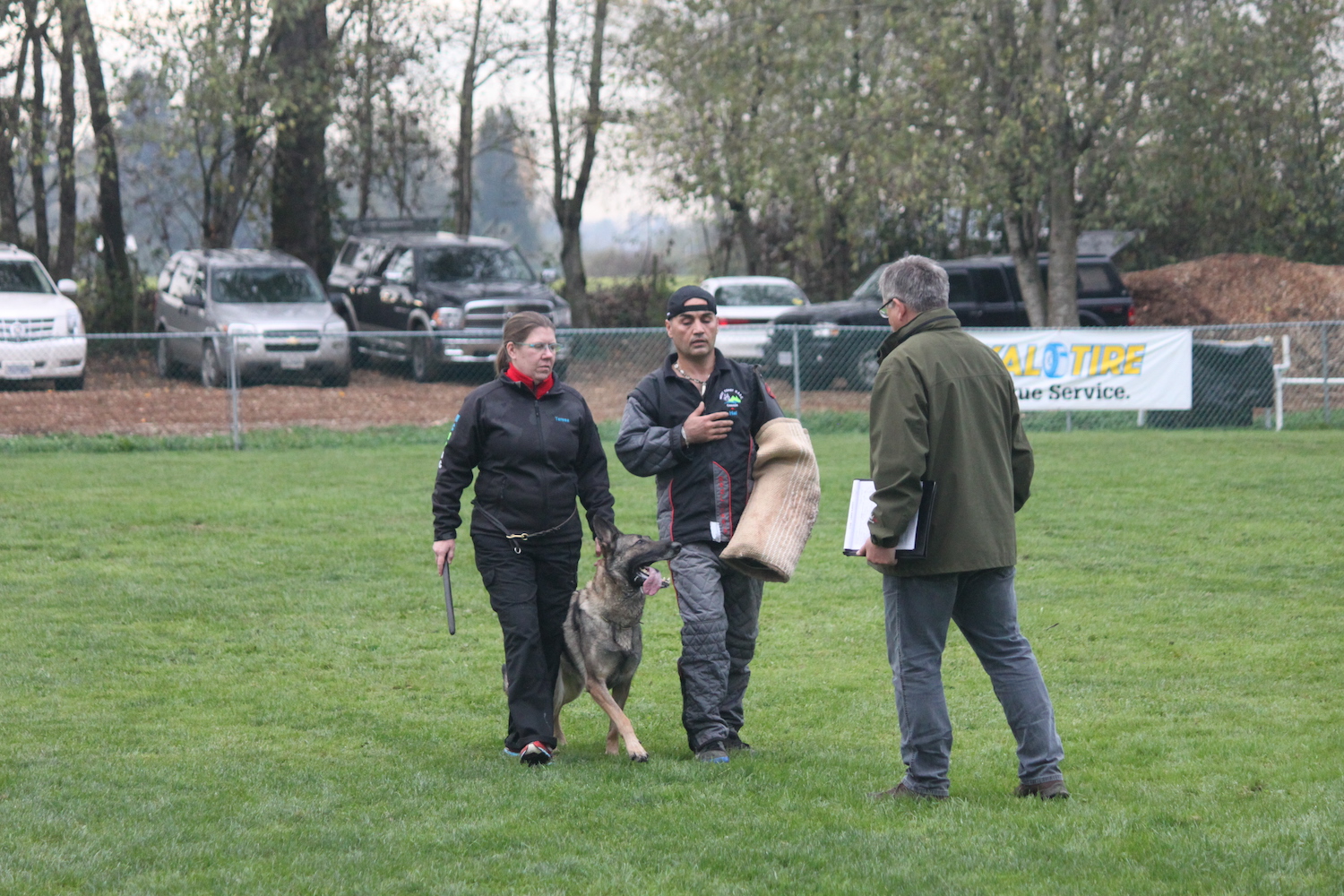
Building an internationally renowned program
Teresa kickstarted conversations at VGH which would launch what is now known as the Canines for Care program, which was able to start thanks to donations made in 2016.
Since then, her program has skyrocketed. Led today by a multi-disciplinary team of medical professionals, dog handlers and infection control practitioners, the team is an international leader in using dogs to rapidly and non-invasively detect pathogens and reduce infection rates in health care settings.
“We’ve been covered on every continent in the world, including Antarctica,” says Teresa. “Every year internationally since we started, media somewhere has highlighted what we are doing. I’ve met all the Ministers of Health since we started, I’ve spoken at conferences all around North America. In May, I’m going to speak at the Canine Olfaction and Detection Science Conference.”
Knowledge-sharing is one aspect of her work Teresa adores. She regularly receives messages from individuals interested in setting up their own programs in Europe, South America, North America, and more. In fact, it prompted her next goal—to create a Centre for Excellence.
“We want to be the place that people come to learn all about biomedical detection with dogs, and how you can use it in a health care setting,” says Teresa.
Today, Teresa’s program has five active dogs working around Vancouver Coastal Health—Angus, Traveler, Fancy, and most recently Fancy’s two pups, Arti and Anton.
Yet when she’s not at work training and working sniffing dogs to help reduce infections at the hospital, she’s winding down with her own hobbies of archery and “Schutzhund”—a German sport she does with her own dog, a german shephard.
“At the end of the day, I like to keep busy,” says Teresa. “I love my work, and I love my hobbies. And I am immensely proud of the things I have accomplished, but I know there’s more work ahead.”
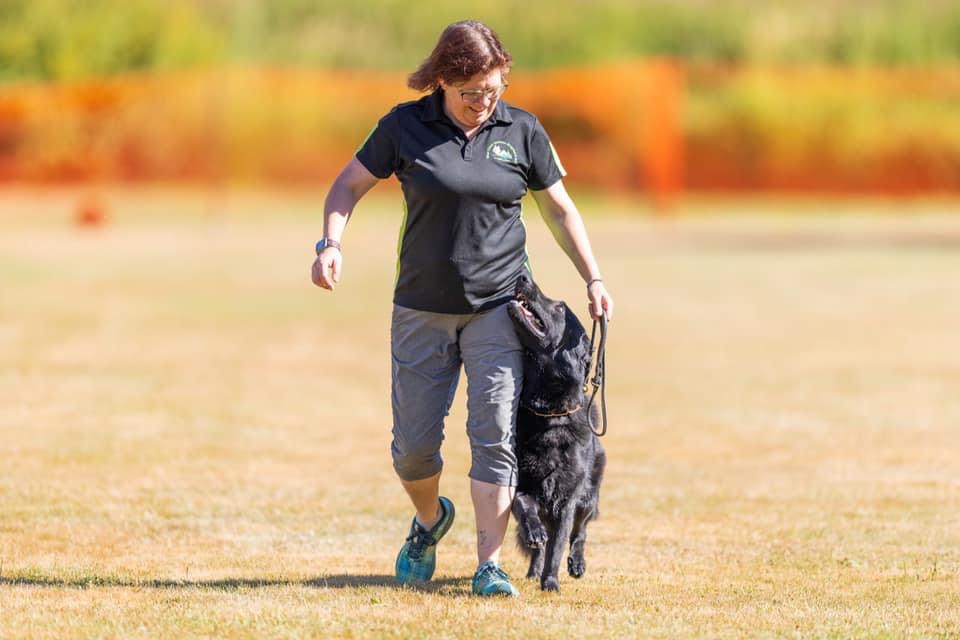
Join us in supporting the canines’ efforts to wipe out C. diff with a sniff. Donate today. Together, we can transform health care.
